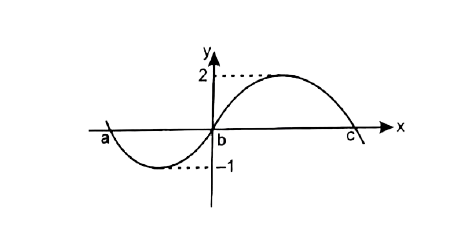A
B
C
D
Text Solution
Verified by Experts
The correct Answer is:
Topper's Solved these Questions
AREA UNDER CURVES
VK JAISWAL ENGLISH|Exercise EXERCISE (COMPREHENSION TYPE PROBLEMS)|6 VideosAREA UNDER CURVES
VK JAISWAL ENGLISH|Exercise EXERCISE (MATCHING TYPE PROBLEMS)|1 VideosAREA UNDER CURVES
VK JAISWAL ENGLISH|Exercise EXERCISE (SUBJECTIVE TYPE PROBLEMS)|8 VideosAPPLICATION OF DERIVATIVES
VK JAISWAL ENGLISH|Exercise EXERCISE (SUBJECTIVE TYPE PROBLEMS)|22 VideosBIONMIAL THEOREM
VK JAISWAL ENGLISH|Exercise Exercise-4 : Subjective Type Problems|16 Videos
Similar Questions
Explore conceptually related problems
VK JAISWAL ENGLISH-AREA UNDER CURVES-EXERCISE (ONE OR MORE THAN ONE ANSWER IS/ARE CORRECT)
- Let f (x) be a polynomial function of degree 3 where a lt b lt c and f...
Text Solution
|
- T(n) =sum ( r =2n )^(3n-1) (r)/(r ^(2) +n ^(2)), S(n) = sum (r =2n+1)^...
Text Solution
|
- If a curve y =a sqrtx+bx passes through point (1,2) and the area bound...
Text Solution
|
- Area enclosed by the curves y = x ^(2) + 1 and a normal drawn to it w...
Text Solution
|
